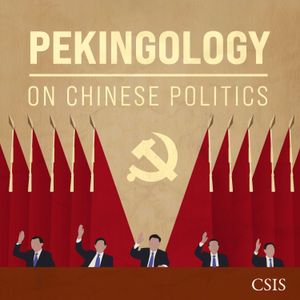In this episode of Pekingology, Freeman Chair in China Studies Jude Blanchette is joined by Chenggang Xu, Senior Research Scholar at the Stanford Center on China’s Economy and Institutions and Visiting Fellow at Hoover Institution of Stanford University to discuss the institutional underpinnings of China’s political economy. What explains the Communist Party’s ongoing resilience? Why did China pivot away from the economic reforms that had generated so much wealth for the country and the government? Xu advances the framework of “Regionally Administered Totalitarianism” (RADT) to describe China’s political economic transition during the reform period. He is also author of the forthcoming book Institutional Genes: The Origins of China's Institutions and Totalitarianism (Cambridge University Press, forthcoming) exploring these questions.

